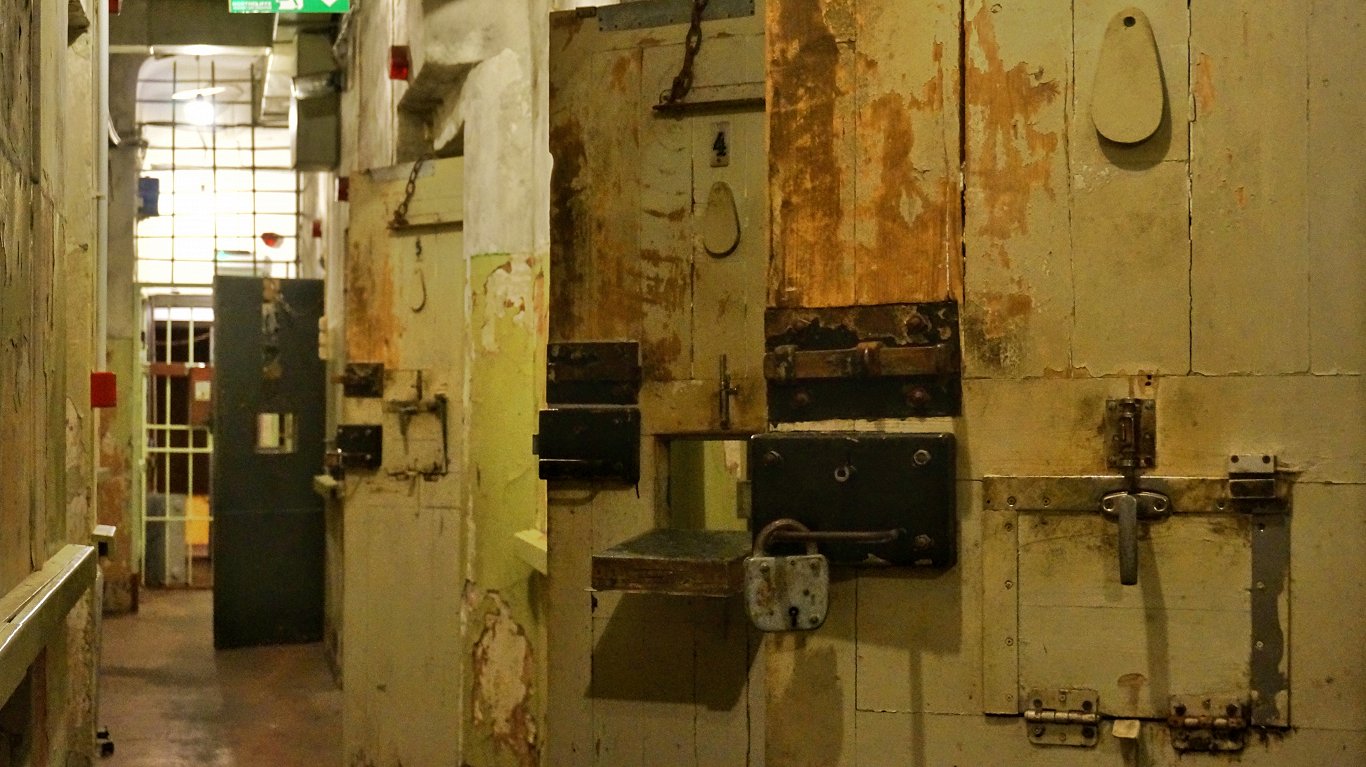The Jāņa Rozes bookstore on Krišjāņa Barona street, was named after the eponymous publisher. But Jānis Roze himself wasn't to be found on the street, seeing as he was deported already in 1941 and died a year later.
After the war, the reputed book lovers' place was renamed the Riga Bookstore No. 3. It only sold books catering to the Soviet ideology. The books of the French intellectual André Gide, were of course banned, though the author had been a communist sympathizer. That is, before he actually went to visit the USSR in the mid-30s .
"In my opinion, in no country today, not even in Hitler’s Germany, is the spirit more suppressed, more timid, more servile than in the Soviet Union," he wrote in his famous Retour de L'U.R.S.S. (Back from the USSR.)
Less known is the fact that Gide had friends among the Latvian cultural elite. At about the time of Gide's USSR visit, artist Kurts Fridrihsons was residing in Paris. Ten years later, in winter 1946, Fridrihsons and other members of the intelligentsia, already decimated by the Soviets, sarted holding French literature evenings in Riga.
Held on Dzirnavu street 70 at the home of Dailes Theater actors Irma and Arnolds of the Stubaus family, these meetings took place on Mondays as it was a holiday for the theater.
There wasn't any political agenda behind these gatherings. They were rather driven by longing for freedom in general and France in particular. The francophiles Fridrihsons, along with translator Ieva Lase and Elza Stērste (an alumnus of Sorbonne and the widow of literary great Edvarts Virza), considered France to be their adopted homeland.
In accordance to the spirit of France's tripartite motto, the group freely admitted members and invited people to bring their acquaintances along. Later, part of them had reason to regret their openness and friendliness.
A dire meeting ensues
In 1951 the former associates were forced to meet once again, at the KGB headquarters that currently house a museum showcasing the history of the repressive agency.
Thirteen people were arrested, most of them in January. They were charged with treason, but of course what was constituted the greatest violation was reading Gide. KGB documents refer to the people as the 'French group' (Franču grupa).

Ieva Lase was reportedly relieved after being arrested. She had undergone several interrogations by the KGB, because she had written, when detained at the Nazi camp in Salaspils, that she longed for the "day when we could say, once again, that this country belongs to us."
Milda Grīnfelde, who had been the last companion of poet Aleksandrs Čaks, was relieved too, as she was arrested last and she was worried that her friends would consider her a traitor if she weren't.
All were sentenced from seven to 25 years' imprisonment.
Gustavs Bērziņš, Mirdza Ersa, Kurts Fridrihsons, Milda Grīnfelde, Ieva Lase, Miervaldis Ozoliņš, Eleonora Sausne, Alfrēds Sausne, Maija Silmale, Skaidrīte Sirsone, Elza Stērste, Irina (Irma) Stubaus, Arnolds Stubaus - these were the people sent to work camps in Siberia.
The most prominent of the 'French group' - namely Lase, Stērste, and Fridrihsons - were all sentenced to 25 years. They were all sentenced around the exact the time of André Gide death in February 1951.
Even though they were pardoned after Stalin's death, their lives were changed utterly. Mirdza Ersa's little boy was left home. Her husband took their boy to bid farewell under her prison window.
Likewise, three-year-old Helja, the daughter of Maija Silmale and Miervaldis Ozoliņš, was taken to the KGB building as well to say goodbye to her parents. The two were deported to separate camps.
The Stubaus family was split as well, and Arnolds Stubaus lived for just two more years after being allowed to return. Irma avoided Dzirnavu street like the plague for the rest of her life.
Elza Stērste, deported at the age of 66, returned half-paralyzed. She lived to reach 91 years old, the exact time her sentence would have expired.

Maija Silmale and Kurts Fridrihsons managed to published a book of French poetry, Es tevi turpinu, in 1970. It was praised by Le Monde. Silmale received an invitation to Paris, but the Soviets pulled a U-turn, taking the book away from the stores and putting Silmale into a mental hospital, a common practice against people who refused to admit Soviet supremacy. She was released after international pressure, but died two years after, at the age of 49.
This story does contain an element of triumph against atrocity. Silmale's friends Ieva Lase and Mirdza Ersta were present when the French Embassy opened in 1992, with president François Mitterrand in attendance as well.
Mitterrand later invited them to celebrate la Fête nationale together with him at the Élysée Palace.


























